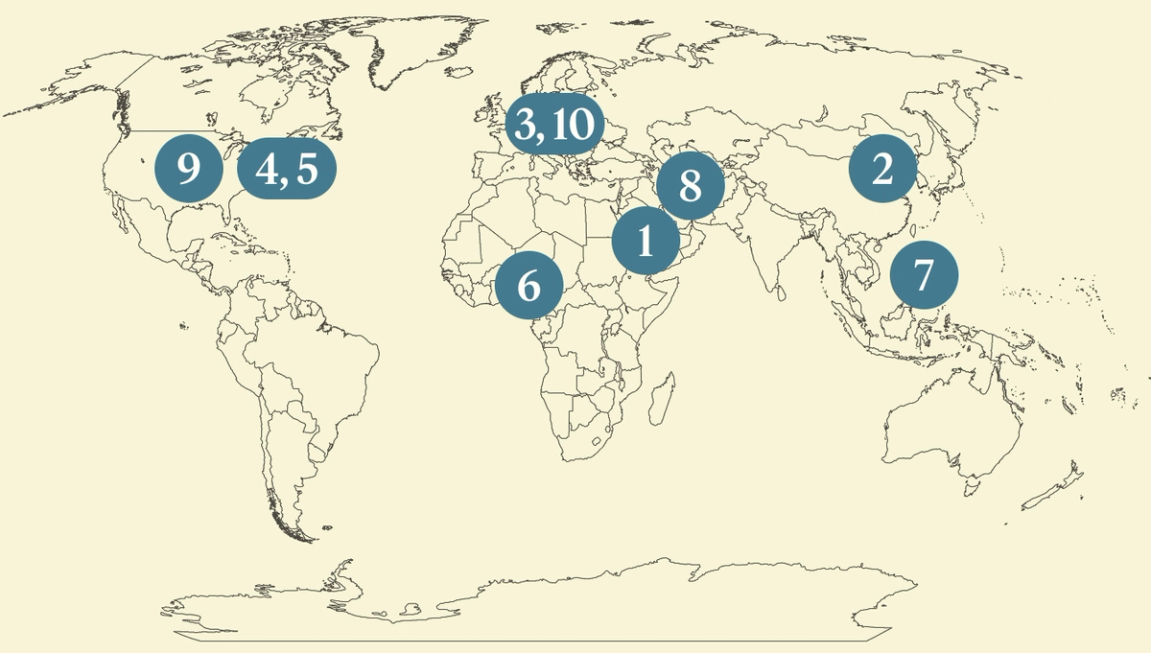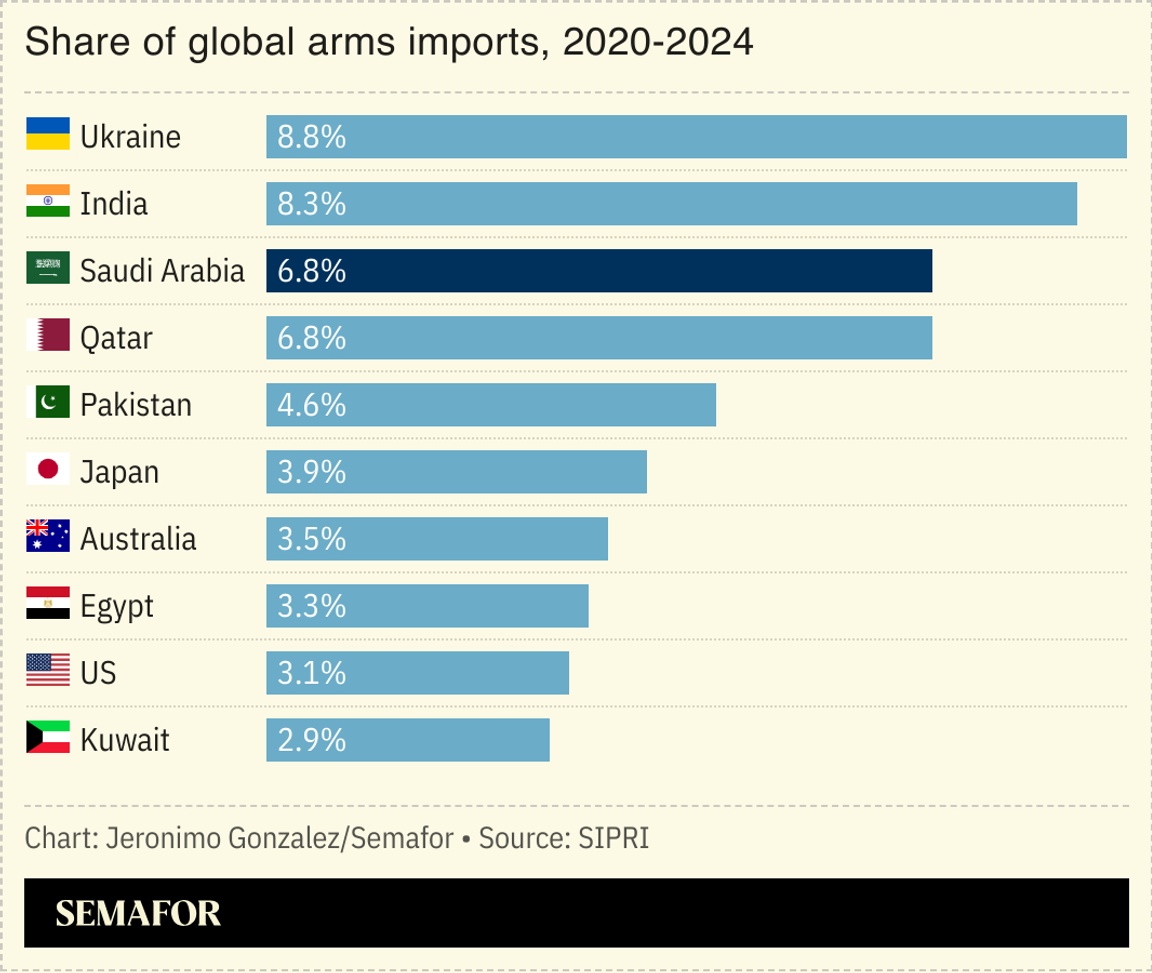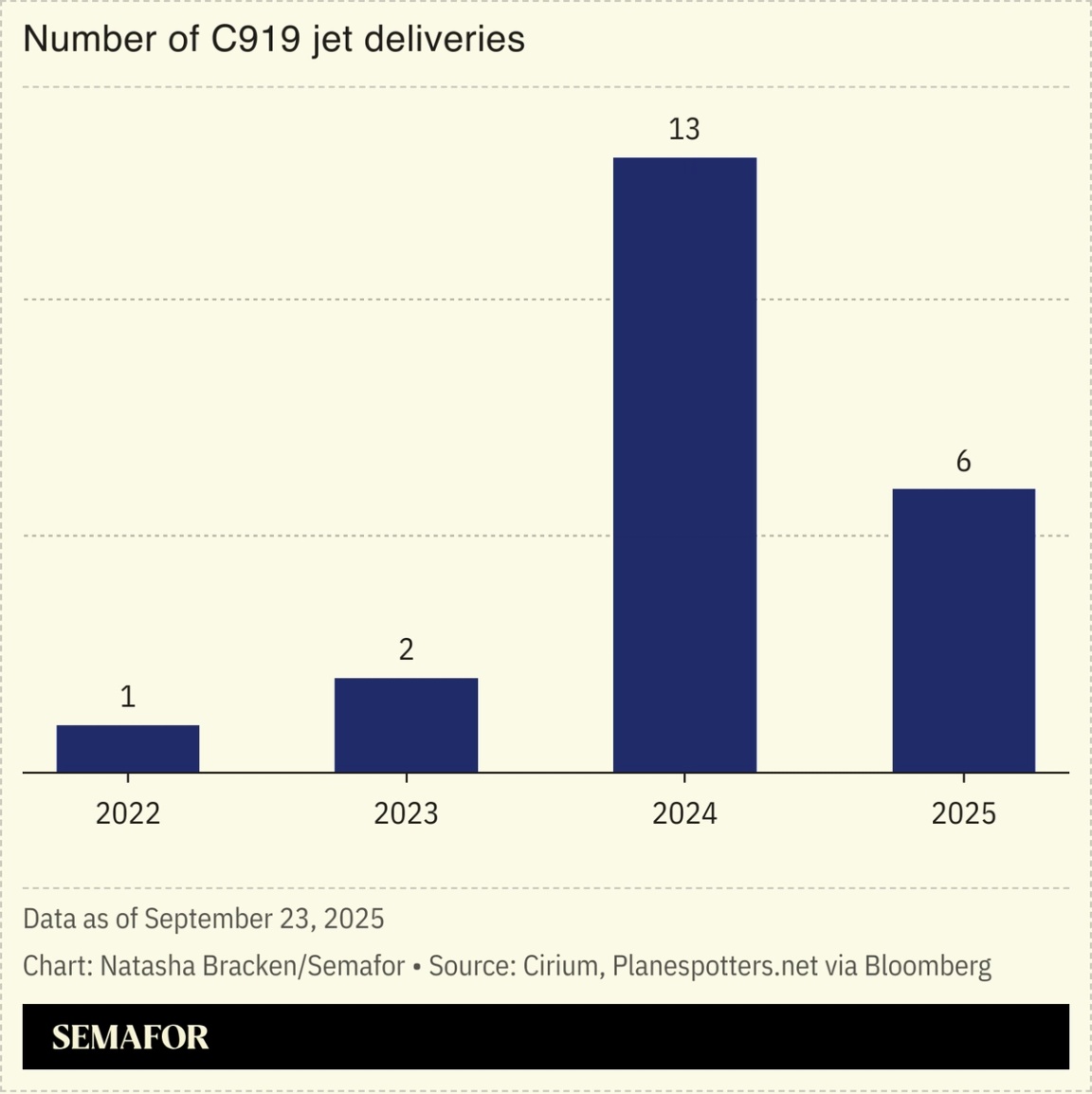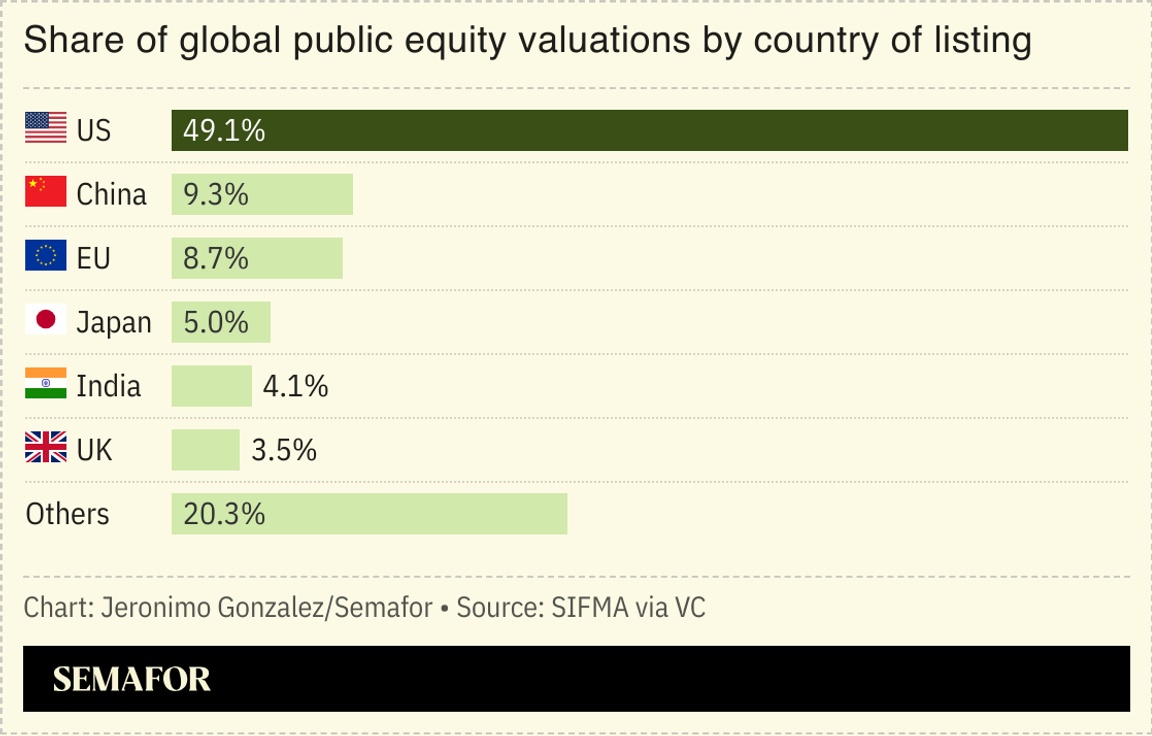| | The US and Saudi Arabia line up a jet fighter deal, Poland accuses Russia of sabotage, and two redis͏ ͏ ͏ ͏ ͏ ͏ |
| |  | Flagship |  |
| |
|
The World Today |  - US-Saudi fighter jet deal
- China’s aviation ambitions
- Russia sabotage allegation
- Selloff raises bubble fear
- Trump issues LatAm threat
- School attack in Nigeria
- Philippines graft scandal
- Iran’s drought measures
- The collapse of marriage
- Bach pieces rediscovered
 A visually spectacular Chinese-inspired opera in San Francisco. |
|
US to sell fighter jets to Saudi Arabia |
 The US plans to sell advanced F-35 fighter jets to Saudi Arabia, one of several deals expected to emerge from today’s talks between their leaders. While US President Donald Trump and Saudi Crown Prince Mohammed bin Salman’s Oval Office meeting may result in the defense sale — and potentially a civil nuclear deal — bigger issues are still in flux. With the Middle East security order changing fast, Riyadh is pushing for a US security guarantee and is publicly pivoting away from Beijing in order to deepen ties with Washington. Separately, as Semafor’s Gulf Editor notes in an upcoming column, an obsolete narrative of bottomless Saudi oil wealth is butting up against the reality that Riyadh, like Washington, is courting foreign investment. |
|
China-made planes eye global markets |
 China’s civil aircraft manufacturer COMAC took a crucial first step towards challenging Western planemaking giants Boeing and Airbus. The company flew its C919 airliner at the Dubai Airshow, in its first unveiling outside of Asia. The narrow-body plane entered service in China in 2023, a rival to the Airbus A320 and Boeing 737, the workhorses of commercial aviation. So far, though, it has had no major customers outside China and lacks certification by major Western regulators. Boeing, though, is struggling after some high-profile disasters, and China’s ties to Gulf countries means there is a market opportunity for COMAC. Analysts told Reuters that China would struggle to gain significant market share, but that COMAC’s presence in Dubai was a signal of its ambition. |
|
Poland calls train explosion ‘sabotage’ |
 KPRM/Handout via Reuters KPRM/Handout via ReutersPoland said an explosion along a railway line used to ferry supplies to Ukraine was an act of “sabotage,” implying that Russia was behind the blast. The incident, which did not result in casualties, was the latest in a series of episodes across Europe for which authorities have suggested Moscow was responsible. Analysts say the Kremlin uses so-called hybrid warfare to sow discord, test European defences, and blur the line between war and peace. Russia has denied responsibility for the various unexplained drone sightings, explosions, and killings. Even as they increase traditional defense spending to deter Moscow, however, Europeans “must also acknowledge that hybrid hostilities with the Kremlin are already underway,” an expert wrote for the Atlantic Council. |
|
Market selloff amid bubble fears |
 An intensifying selloff hit global markets yesterday, with stocks, crypto, and even gold dropping sharply. The rout, partly fueled by investors’ worries of a US equities bubble, led to the Dow Jones Industrial Average’s worst three-day stretch in months, with tech stocks particularly hit: Nvidia, the world’s most valuable firm, lost almost $100 billion from its market capitalization. Analysts have for months warned of an over-concentration of capital on the so-called “Magnificent Seven” tech firms, with some questioning whether the companies will be able to generate the extraordinary revenues needed to justify their soaring valuations. Meanwhile abroad, experts warn of a deepening global exposure to American stock markets, with foreign investors owning a record share of US equities. |
|
Trump threatens more LatAm strikes |
 U.S. Navy/Petty Officer 3rd Class Gladjimi Balisage/Handout via Reuters U.S. Navy/Petty Officer 3rd Class Gladjimi Balisage/Handout via ReutersUS President Donald Trump threatened to expand his military campaign to countries across Latin America, rattling local markets and upending geopolitics in the region. The Trump administration has carried out strikes on vessels off the coast of Venezuela alleged to be ferrying drugs, and the president said yesterday he would be “proud” to extend attacks to include land targets in Colombia, Mexico, and Venezuela. The threats mark a sharp shift in Washington’s foreign policy, suggesting it wants to make the Western Hemisphere — where Chinese presence has surged this century — its central focus, The New York Times’ Mexico bureau chief said. The “Donroe Doctrine… promises major benefits,” including access to natural resources and “strategic security positions,” Jack Nicas wrote. |
|
Gunmen attack Nigeria girls’ school |
 Sodiq Adelakun/Reuters Sodiq Adelakun/ReutersGunmen abducted 25 girls from a boarding school in northern Nigeria, the latest sign of the country’s persistent security struggles. The region — which borders the Sahel, the world’s terrorism hotspot — has for years been overrun by Islamist militias including Boko Haram, which in 2014 kidnapped 270 girls in northern Nigeria. Successive governments have vowed to crack down on the armed groups, though progress has been limited. The US, which has accused Abuja of doing little to stop the killing of Christians in the country, has pushed for greater cooperation; Nigeria’s foreign minister confirmed recent security talks between the countries, AFP reported. |
|
Philippines rocked by corruption scandal |
 Noel Celis/Reuters Noel Celis/ReutersA corruption scandal over allegedly misappropriated flood-control funds is rocking the Philippines, undermining the economy and shaking investor confidence. Deadly floods last summer exposed failures in the country’s flood-control infrastructure: Authorities say corrupt officials stole millions of dollars intended for the projects, which were either shoddily built or not built at all. Three senior officials, including a cousin of President Ferdinand Marcos Jr, have resigned, and widespread protests have erupted. Marcos launched an investigation, vowing to arrest anyone implicated in the case. But he is vulnerable: His father was ousted as president following a graft scandal, and his estranged vice president said Marcos is facing a “crisis of confidence.” The country’s stock index is down 12% this year. |
|
Iran turns to cloud-seeding |
 Majid Asgaripour/WANA via Reuters Majid Asgaripour/WANA via ReutersIran began cloud-seeding operations in an attempt to induce rainfall to alleviate a devastating drought. The state news agency IRNA said a seeding flight took off on Saturday; the practice involves spraying particles, such as salt or silver iodide, into clouds to trigger rain. The country’s meteorological service said rain is 89% below the long-term average this year, and this is the driest autumn in half a century. No rain has fallen in half of the country’s provinces in months, water levels in many reservoirs are at record lows, and ski resorts only just saw their first snowfall of 2025. President Masoud Pezeshkian said recently that if the drought continues, Tehran may have to be evacuated. |
|
US high school girls don’t want to marry |
 Jeenah Moon/Reuters Jeenah Moon/ReutersThe percentage of senior US high school girls who say they want to get married has plummeted, polling suggested. Though attitudes among boys aged 17 and 18 have remained largely unchanged, the proportion of similarly aged girls looking to marry has fallen from 83% in 1993 to 61% in 2023. Falling fertility rates are causing concern globally, but the problem may be upstream of childbirth. Marriage rates worldwide are falling; in China they hit an all-time low of 6.1 million last year, and South Korea and Japan have seen major falls. Japan had the fewest marriages in 90 years in 2024, and Korean women are embracing the “4B” movement, rejecting marriage, childbirth, dating, and sex with men. |
|
|